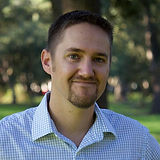

The Future of Space Medicine
.png)
This event will be carried out in an online format. The whole event, including the panel discussion, will be translated online. The recording will be available a week after the event.
Understanding of new technologies emerging for space medicine will become ever-more important with the soon-to-come plunging of launch prices, enabling thousands of people, many not necessarily in the best of physical health, to visit space in the near future. In addition, with that much activity, the chances of accidents will vastly increase, and many of them will need to be dealt with in space, because waiting for an ambulance to get back to Earth may be too late. But we haven’t developed protocols or procedures for surgery or burn treatments in free fall (though ironically, that may be the best environment in which to treat a burn victim, and conceivably, there could even be orbital hospitals for such cases).
Speakers
Professor Thais Russomano
Visiting Senior Lecturer, Centre of Human & Aerospace Physiological Sciences, Co-Founder & CEO, InnovaSpace (UK)
Professor Thais Russomano - is a Brazilian doctor and scientific researcher specialising in space medicine, space physiology, biomedical engineering, telemedicine and telehealth. She founded the Microgravity Centre at PUCRS university, Porto Alegre, Brazil, in 1999, coordinating it for 18 years until 2017. She is now a Visiting Senior Lecturer, Centre of Human & Aerospace Physiological Sciences, Co-Founder & CEO, InnovaSpace (UK)
Dr Elisa Raffaella Ferrè
Senior Lecturer in the Department of Psychological Sciences at Birkbeck University of London
Dr Elisa Raffaella Ferrè is a Senior Lecturer in the Department of Psychological Sciences at Birkbeck University of London. Her research investigates the interaction of signals from different sensory modalities, primarily between vestibular, visual and somatosensory inputs. Using a range of techniques from neuroscience, neurophysiology and experimental psychology, she has demonstrated that vestibular–multisensory interactions are crucial in several cognitive and perceptual processes, including gravity processing. She is currently focusing on how the human brain represents terrestrial gravity and uses it to guide behaviour.
Dr Li Shean Toh
Assistant professor at the Division of Pharmacy Practice and Policy
Dr Li Shean Toh is an assistant professor at the Division of Pharmacy Practice and Policy. Prior to her appointment at the division she worked as a lecturer in medicines management at the University of Tasmania, Australia. Li Shean obtained her PhD from the University of Nottingham and she has worked as a pharmacist in various areas which includes tertiary hospital, general practice and community. Her Master of Pharmacy was completed at the University of Strathcylde, UK.
Dmitry Kaminskiy
General Partner of Deep Knowledge Group
Dmitry Kaminskiy is a General Partner of Deep Knowledge Group (DKG), a consortium of commercial and non-profit organizations active on many fronts in the realm of DeepTech and Frontier Technologies (AI, Longevity, FinTech, GovTech, InvestTech), ranging from scientific research to investment, entrepreneurship, analytics, media, philanthropy and more.
Dr Scott Solomon
Associate Teaching Professor in the Department of BioSciences at Rice University
Scott Solomon - is an Associate Teaching Professor in the Department of BioSciences at Rice University; Author of “Future Humans: Inside the Science of Our Continuing Evolution” (Yale University Press). Writer/Producer/Scientific Consultant for Becoming Martian (CuriosityStream); Professor with Wondrium/The Great Courses, and Glasscock School of Continuing Studies. Research Collaborator at the Smithsonian Institution’s National Museum of Natural History; Host of educational travel adventures in wild places.
Dr Jon Sen
Assistant Professor of Neuroscience at the University of Nottingham
Dr Jon Sen is Neurosurgery and Clinical Informatics Fellow at Cleveland Clinic London. He has a long standing interest in the brain in health and disease. Following his PhD in Neurotrauma at University College London, he is honorary Clinical Lecturer at Keele University (in collaboration with with the Neural Tissue Engineering group) and Assistant Professor of Neuroscience at the University of Nottingham. He is also a Medical Director at Mayday Assistance Limited and Hearts First Ambulance Ltd. In this role, he manages patients all over the world often in very challenging conditions, and has undertaken nearly 400 air ambulance missions worldwide.
Agenda
Opening Remarks
5:30 - 5:50
Katarzyna Chwalenia (Events Officer at Oxford Aeronautical Society), and Ian Inkster (Aging Analytics Agency Head of Policy)
5:50 - 6:10
Professor Thais Russomano (Senior Lecturer at the Centre of Human & Aerospace Physiological Sciences)
Medical Challenges of Space Missions for Female Astronauts
6:10 - 6:30
Dmitry Kaminskiy (General Partner of Deep Knowledge Group)
Longevity and Space Medicine: Practical Applications to Establish the Mindset of Space as the Next Longevity Frontier
6:30 - 6:50
Dr Elisa Raffaella Ferrè (Cognitive neuroscientist at the Royal Holloway University)
Astronauts Psychology and Behavioral Adaptations to long-term SpacefLight
6:50 - 7:10
Dr Li Shean Toh (Assistant professor at the University of Nottingham)
Pharmacy in Space (preliminary topic)
7:10 - 7:30
Dr Jon Sen (Neurosciences and Informatics Fellow Cleveland Clinic London, Assistant Professor of Neuroscience at the University of Nottingham)
The Impact of Weightlessness on the Human Neural System
7:30 - 7:50
Dr Scott Solomon (Associate Teaching Professor at Rice University)
Five Important Questions for Establishing Human Settlements in Space
7:50 - 8:30
Panel Discussion






